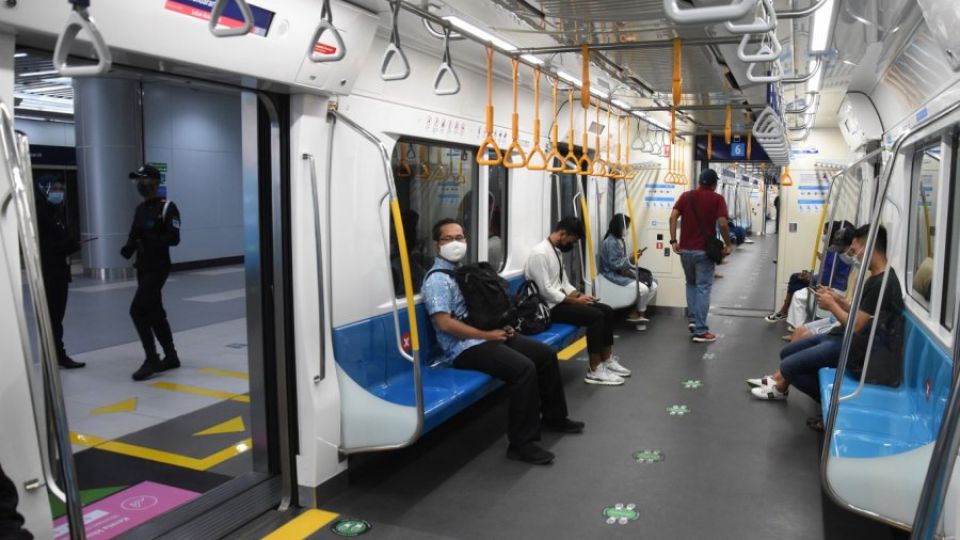June 13, 2023
JAKARTA – As Indonesia moves closer to treating COVID-19 as an endemic, the Jakarta Transportation Agency on Friday lifted the mask requirement on public transportation, with city-owned public transportation operators implementing the ease of restrictions to immediate effect.
“[Commuters] are allowed to take off their masks as long as they’re healthy and at no risk of infecting or being infected with COVID-19,” agency head Syafrin Liputo wrote in a circular dated June 9. “For those feeling unhealthy or possibly infected with COVID-19, it’s still advisable to wear masks in public facilities.”
Through their respective social media accounts, public transportation operators TransJakarta, MRT Jakarta and LRT Jakarta have announced that they have accordingly dropped the mask mandate, which had been in effect since April 2020.
The government lifted the nationwide public activity restrictions (PPKM) at the beginning of the year, including the general mask mandate. Despite the lifting of PPKM, public transportation operators in Jakarta still required commuters to wear masks while in transit until the circular as issued on Friday.
However, state-owned railway operator PT KAI Commuter Indonesia (KCI), which serves the Greater Jakarta metropolitan area, has yet to follow suit. “For now, we’re still following the existing health protocols while we await new regulations from the Transportation Ministry.” KCI public relations manager Leza Arlan told The Jakarta Post on Sunday.
Read also: Gov’t relaxes COVID-19 restrictions, masks no longer mandatory
Unlike city-owned TransJakarta and MRT Jakarta, KCI remains a subsidiary of the state-owned enterprise PT Kereta Api Indonesia (KAI), and falls under the authority of the Transportation Ministry.
The Jakarta Transportation Agency’s decision to drop mask mandates on public transportation followed a decision by the central government on Friday that people who are healthy and not at risk of spreading or being infected by COVID-19 are allowed to not wear masks.
Data from the government showed that from the beginning of the year until June 8, COVID-19 cases in the country have shown a decline. The number of positive cases went down from 366 cases to 254 cases since January 1 with 43 percent less casualties.
Looking at the current situation, epidemiologist Dicky Budiman admitted that it was feasible for the government to drop the mask mandate. “But the threat of COVID-19 still exists, not in terms of fatality, but how long COVID-19 could severely impact someone’s quality of life and how repeated infections could damage someone’s organs,” Dicky told the Post on Sunday.
Even if masks are no longer mandatory, Dicky argues that the government still has a responsibility to communicate the importance of wearing masks in public. “Masks aren’t just for COVID-19, but also to guard against pollution, which is important in a metropolitan with poor air quality such as Jakarta,” Dicky said.
Despite a court ruling in 2021 ordering the President, the environment and forestry minister, the health minister, the home minister and the governors of Jakarta, Banten and West Java to tighten environmental regulations and improve air quality, pollution in the capital has progressively gotten worse.


